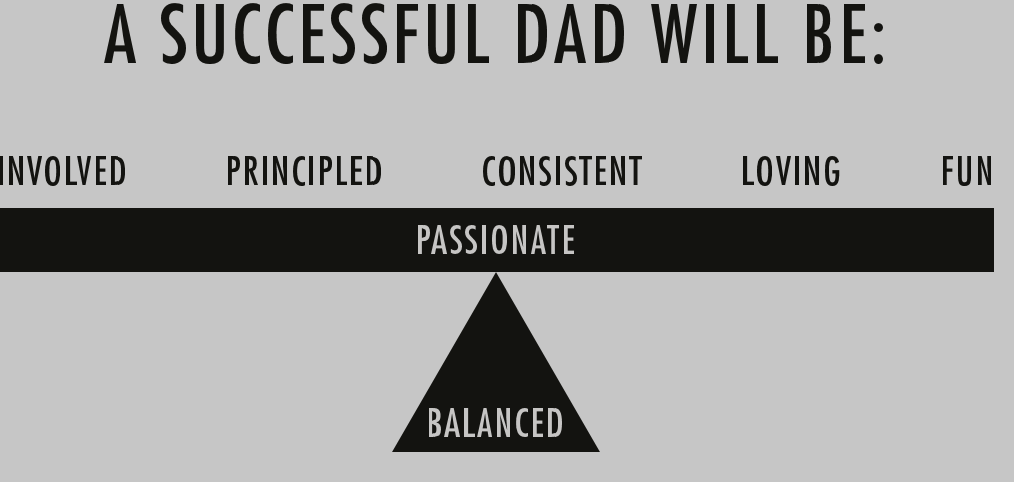~ Mike Rowe
Do you know what dads are perfect for - talking to their kids. This simple act shows that you care, allows each of you to know each other better, and is a way to impart wisdom, i.e., discussing things that can help them now and in the future. One subject not on top of most young peoples’ minds is long term goals. Following is a topic that can make your children think. The issue is happiness, and how do they achieve it? Or more importantly, what does being happy mean to them?
We all want happiness for ourselves and our loved ones, but should it be something to strive for, our goal? We hope for it, and we do things for ourselves and others, thinking it will bring happiness. Sometimes we are successful in this pursuit, but more often, happiness is a byproduct of something else. But what?
It’s pretty simple, really, but it’s difficult for some to grasp, especially those that have not yet fully matured.
- That something involves delaying gratification, and who wants to do that?
- It also involves a higher purpose than your happiness, but is there a higher purpose?
- And it takes some effort. Ugh!
That ‘something else’ that so often has happiness as a byproduct is ‘accomplishment!’ Accomplishment is the achievement of a purpose or goal. It involves effort and a result worthy of that effort. It could be improving yourself, helping someone or a cause, or creating, giving, comforting, mentoring, improving, or just caring. That’s meaningful - a meaningful life is a value-added life. It requires hard work, determination, and a plan.
A happy life is not going to happen without meaningful contributions. That’s where delay in gratification is so significant. When you spend each moment and dollar towards pleasure at that moment, you are self-centered. Think of two hungry men on the streets. A man comes up and tells them that one can have his lunch, but he only has enough for one. However, the man offers the second person a job learning how to do landscaping, allowing him to make money to buy food, not just for today, but every day (the fish or fisherman story).
No doubt, the one who chooses the lunch will be happier sooner because the hunger has passed. But it will return. The one who learns to landscape suffers through a day of hard work and continued hunger. But at the end of the day, his hunger is also satisfied. When hunger strikes again, he will not have to depend on anyone. He may even buy lunch for his lazier friend, who again will be dependent. Is one happier than the other? I have my thoughts, but who knows for sure. I do know that ‘happiness is ephemeral while accomplishment is forever.’
You may think, “well, some accomplished people are not happy,” and you would be correct. Not being happy could be caused by clinical depression or other issues beyond their control. It’s never their accomplishments that cause their unhappiness. In fact, accomplishments are endorphins that fight against the sadness that may come into our lives.
Some people search for happiness through avoidance. They are avoiding responsibility, work, education, exertion, communication, or even confrontation. They are relieved in their avoidance, confusing it for some joy. If happy but lazy people exist, they are dull and of little use to society. Their moments of happiness are dependent on their habits - drinking, smoking, constant TV or video games, or other usually egocentric acts - and dependence on others. Satisfaction comes not from narcissism, but altruism. Your happiness today may rob you of happiness in the future.
But there are no rewards for lazy people because they avoid all risks. There are no contrasts that make like interesting. No challenges to overcome. No warmth after being cold. No adrenalin. No feelings of relief after a particular fear is conquered. We learn so little by having no conflict. Rest is boring if you’ve nothing to rest for - or no goal for which to strive. On the other hand, rest is blissful after a meaningful activity. It is a chance to reenergize those with goals in mind. Result-oriented living is always chasing new challenges. It is life too busy to be unhappy.
However, a particular accomplishment is not always the path to happiness. It’s more like a continuum of accomplishments – keeping busy, doing good things for yourself and others, being resourceful, and involved - that brings enjoyment. If nothing else, you will be too preoccupied to think of poor little you. You know you are happy when you admire the accomplishments of others and don’t envy them, which happens when you have achieved much yourself and realize what others achieve helps us all.
The conundrum for many is, to go to a better place from where you are, you must first go through discomfort, stress, and sometimes pain. Kids, and even adults, need to know it is worth it and not to let fear or ignorance get in the way. They will like how they feel on the other side.
A conversation like this may be lost the first time through. But if you live it, repeat it, have numerous examples of this philosophy working for others, then you are on your way to forming strong values in your children. Maybe you will even remind yourself of things you may not have thought about in a while. The Power of Dadhood is mighty indeed, for good or bad.
















